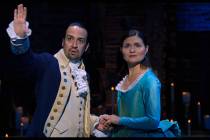Looking back on Tupac Shakur’s movie career
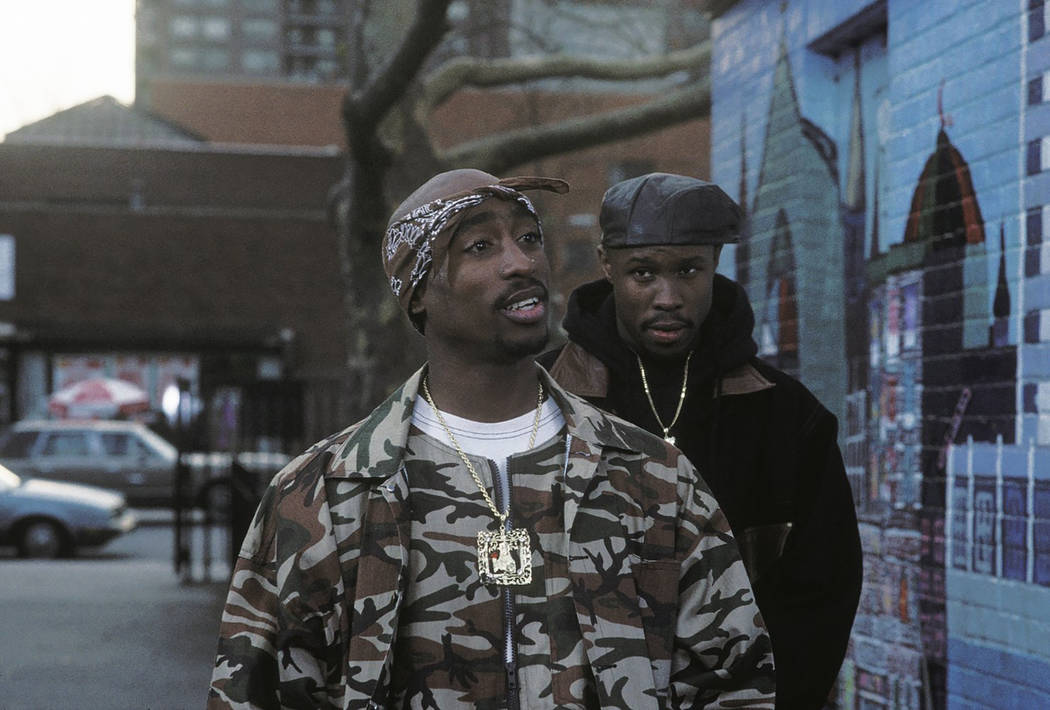
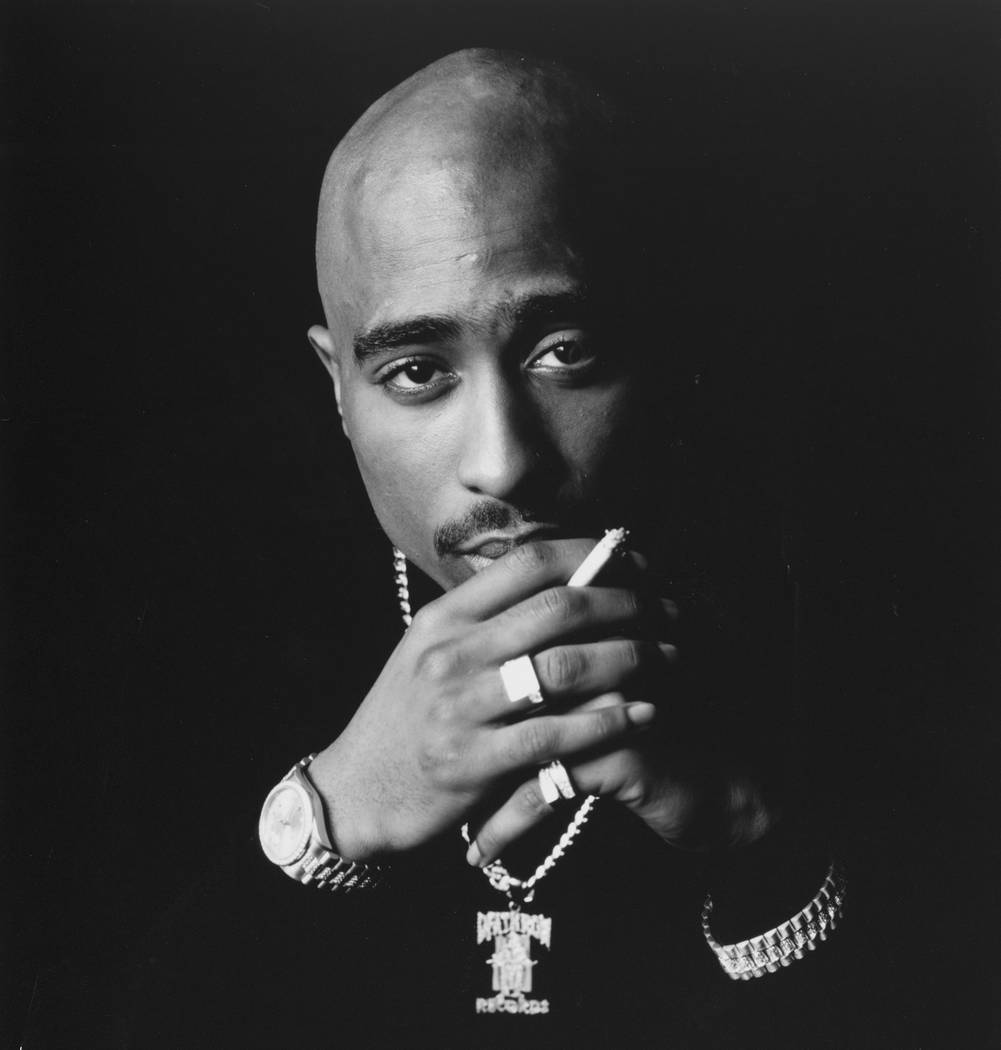
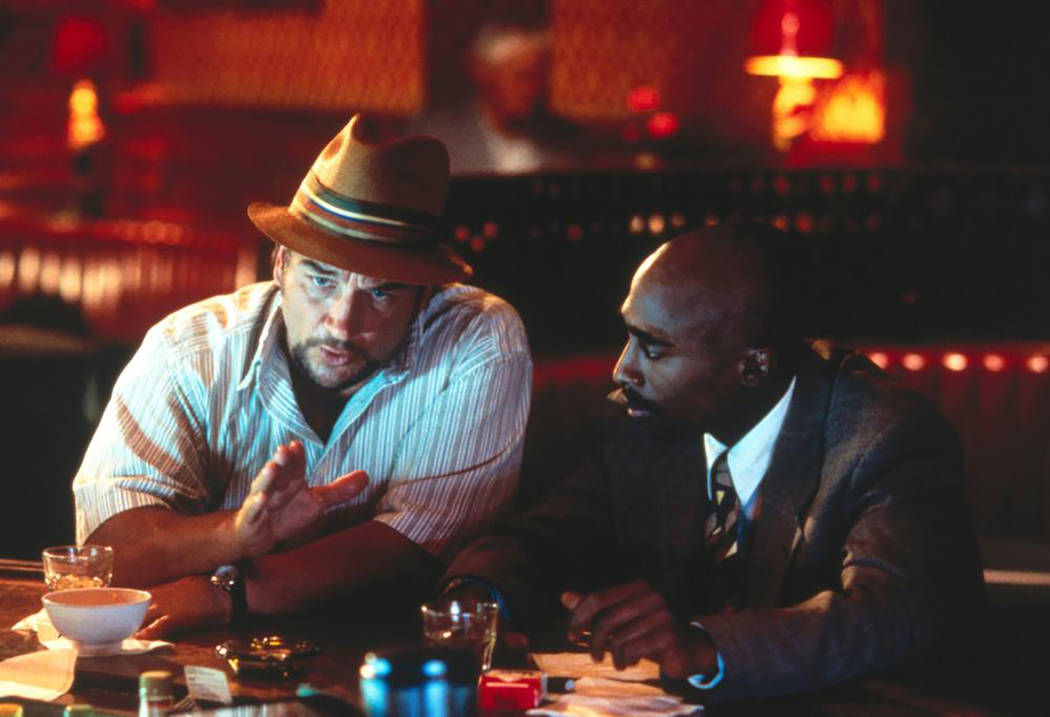
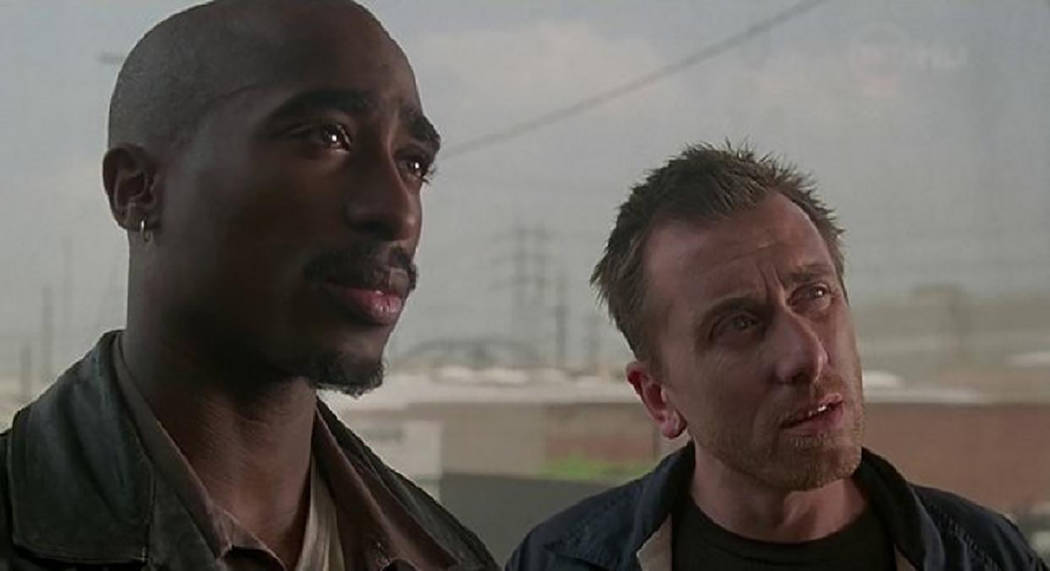
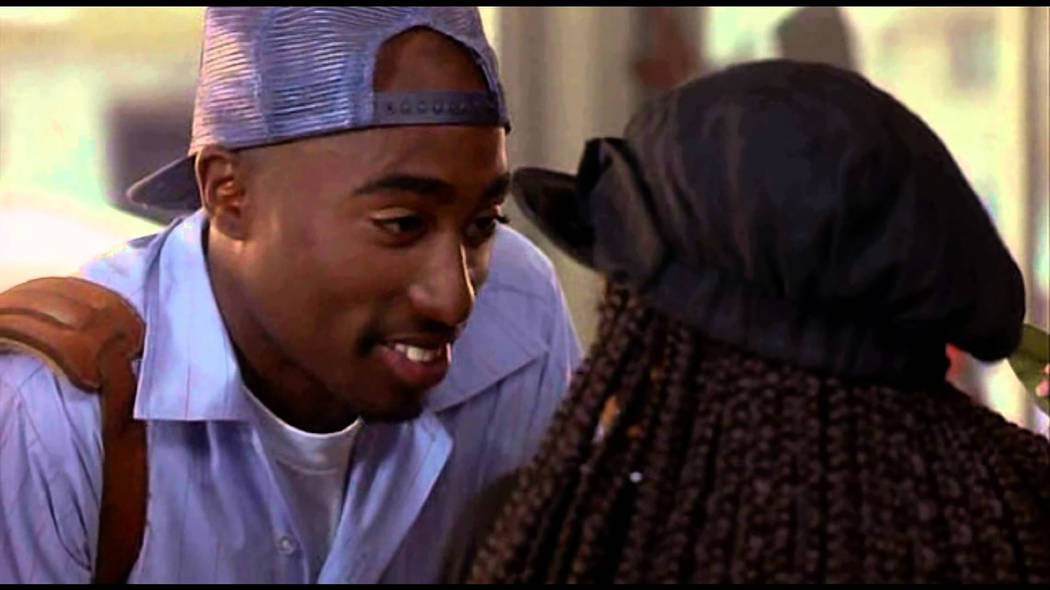
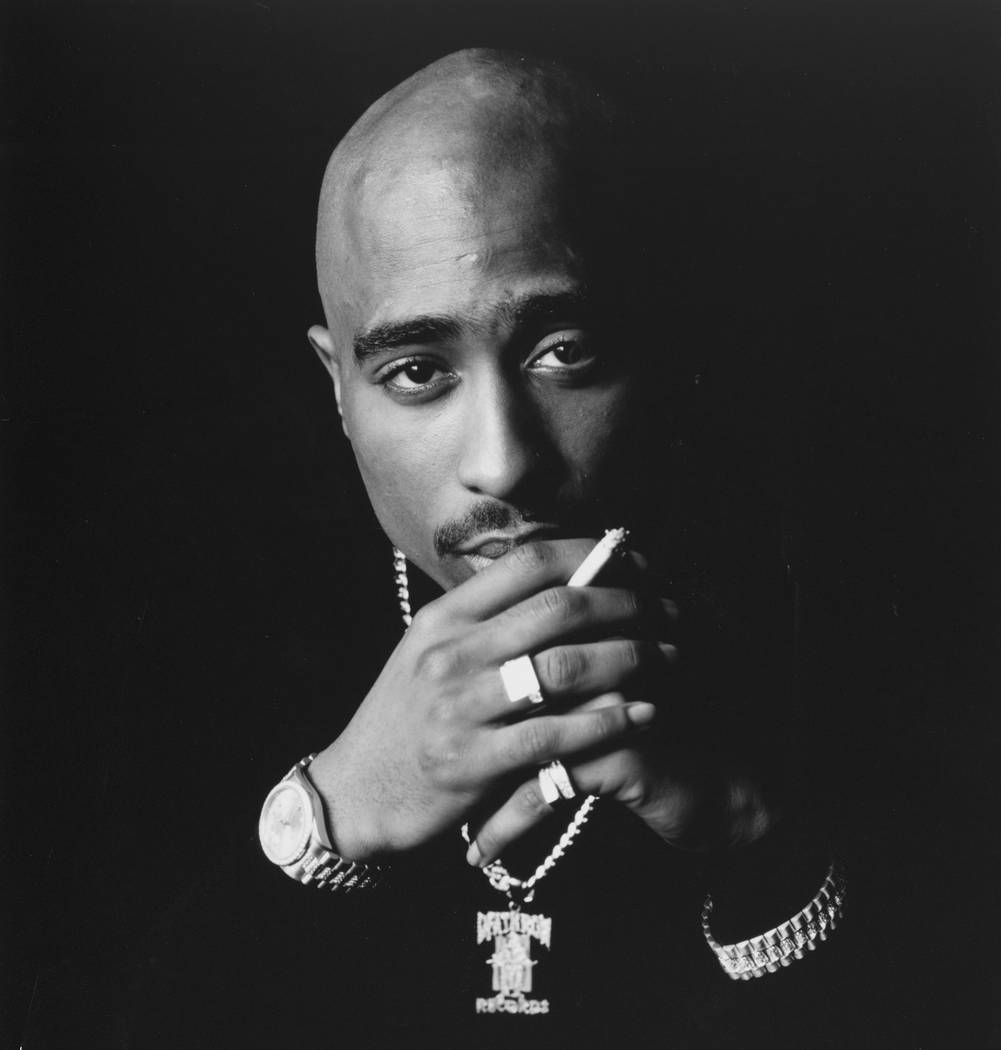
South Florida, December 1993.
As part of a romantic night out with my Jewish girlfriend, I took her to a screening of this new movie I’d been dying to see: “Schindler’s List.”
Much like now, I had an alarming lack of game.
One of the preshow trivia cards, titled “Movie Pairs,” was a word jumble along the lines of “AJNET SNOACKJ & CTPAU SKRAHU.” When the answer was revealed to be “JANET JACKSON & TUPAC SHAKUR,” a confused voice from the back of the room wondered, too loudly, “Why is that one name still scrambled?”
Shakur, who would have turned 46 on Friday, may not have conquered Hollywood the way he did the music industry. But who’s to say what the rapper could have accomplished had he not succumbed to gunshot wounds on Sept. 13, 1996, at University Medical Center at the tender age of 25?
Shakur starred in six movies — not counting a bizarre appearance with the rest of Digital Underground in the would-be comedy “Nothing But Trouble” — the last three of which were released posthumously.
There are no doctors on his list of credits. No lawyers or nuclear physicists either. Shakur was more likely to play the guy who robbed, shot or sold crack to a nuclear physicist. Like his music, his movie roles were raw and as hard as the streets.
With the Shakur biopic “All Eyez On Me” hitting theaters this weekend, here’s a look back at Tupac Shakur, the actor.
“Juice” (1991)
Shakur’s first acting role also was one of his meatiest.
His Bishop, one of four Harlem friends who routinely skip school to hustle players at the local arcade (run by Samuel L. Jackson) or steal albums for aspiring DJ Q (Omar Epps), is routinely pushed around by the members of a Puerto Rican gang. “All we do is run,” Bishop complains to Q. “I feel like we’re on the (expletive) track team.”
Then he gets his hands on a gun, murders a shop owner during a robbery and begins intimidating and/or killing friends and enemies alike to cover his tracks.
Shakur sparks with raw energy as he consoles the mother of one of his victims, hugging her and vowing to catch the killer.
It’s the only real character arc Shakur had the chance to play.
“Poetic Justice” (1993)
The subject of that “Movie Pairs” scramble, “Poetic Justice” is Shakur’s most famous film. Written and directed by John Singleton as the follow-up to his Oscar-nominated “Boyz n the Hood,” the movie also was the only time Shakur played a fine, upstanding citizen: a postman named Lucky who falls for a hairdresser named Justice (Janet Jackson) during a mail run from South Central L.A. to Oakland.
Lucky is a good man with a steady job whose top priority is keeping his young daughter away from his drug-addicted baby mama. His low-key charisma and ready smile hinted at a bright future for Shakur that never was to come.
“Above the Rim” (1994)
As Birdie, the local drug dealer and all-around bad influence on a promising high-school basketball star (Duane Martin), Shakur isn’t asked to stretch beyond his music videos. He sports his trademark front-tied do-rag and nose ring; if it weren’t for the prosthetic scar on his cheek, you’d swear he just rolled out of bed.
Aside from murdering a homeless man (Bernie Mac) with a razor blade just for kicks, Birdie doesn’t do much other than coach a rival team in a city basketball tournament, chomping a stogie on the sidelines like a thugged-out Red Auerbach.
It could have turned out much differently, though. Costar Wood Harris, best known as Avon Barksdale on HBO’s “The Wire,” revealed earlier this year that the movie had to be altered to fit the footage Shakur had filmed because the rapper was shot five times in New York before he’d completed his scenes.
“Bullet” (1996)
Shakur portrays Tank, a drug kingpin out for revenge against the recently paroled Butch “Bullet” Stein (Mickey Rourke), who cost Tank an eye.
Shakur’s a minor player in this mess of a movie, and it’s just as well. Rourke’s Bullet wears a beanie with a do-rag tied over it and his sweatshirt’s hood over all that, plus a Star of David pendant. His younger brother (Adrien Brody) is an artist, which you can tell because of his beret. Bullet’s best friend (John Enos) snorts coke in a pink Cadillac while singing along to Right Said Fred’s “I’m Too Sexy.” All three of them shoot up while driving around New York, despite the city’s thousands of potholes. And Bullet’s unstable war veteran brother (Ted Levine, Buffalo Bill from “The Silence of the Lambs”) instructs 12-year-olds in combat tactics like the best way to sever a man’s carotid artery.
Even with his God-given charisma, there’s no way Shakur could compete with any of that ridiculousness.
“Gridlock’d” (1997)
It’s remarkable what Shakur could do when paired with a real actor like Tim Roth.
This dark social comedy follows two members of a spoken-word band, heroin addicts Spoon (Shakur) and Stretch (Roth), who decide to get clean after their singer, Cookie (Thandie Newton), overdoses on her first hit. “We don’t even get high off the (stuff) anymore,” Spoon laments. “We just do it to keep from gettin’ sick,”
Convinced that if they don’t get treatment that day they never will, Spoon and Stretch are bounced from one government agency to another. They can’t get into rehab without a Medicaid card, can’t get a Medicaid card without being on welfare and can’t get on welfare without waiting weeks or even months. They’d actually be better off, in terms of receiving help, they’re told, if they were HIV-positive.
Shakur plays the comedy with a light touch and, for once, gets to display actual emotion, instead of just coasting on his charm, as he fears for Cookie’s life.
“Gang Related” (1997)
Shakur finally gets to play a cop, but of course, it’s a dirty cop who, along with his even dirtier partner (Jim Belushi), kills an undercover drug enforcement agent.
After trying to frame some usual suspects, they blame the murder on an out-of-it homeless man, curiously played by a filthy, mumbling Dennis Quaid.
“Gang Related” aspires to something greater, but the end result is barely watchable.
Sadly, it means Shakur’s last movie was with Jim Belushi.
That’s just wrong.
The only person whose last movie should be with Jim Belushi is Jim Belushi. And even that seems harsh.
Contact Christopher Lawrence at clawrence @reviewjournal.com or 702-380-4567. Follow @life_onthecouch on Twitter.




